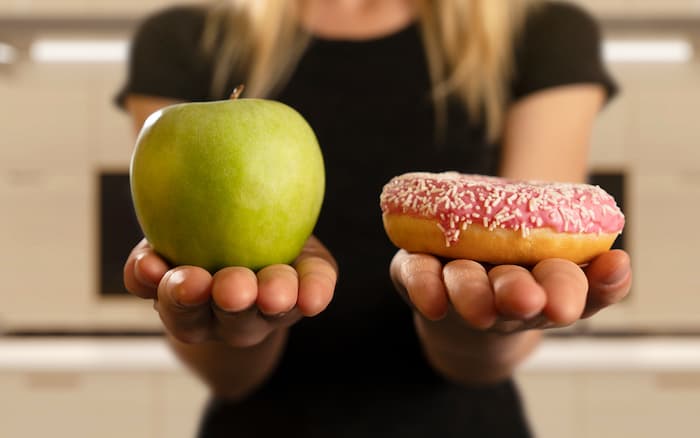
It depends—not all sugars are equal.
And, this time of year brings with it dangerously high levels of sugar (even toxic amounts) with all the added festivities from Halloween through the holidays and into celebrating the new year. It’s extremely important to understand the sugars you’re consuming and the effects on your health.
Dr. Nina’s What You Need to Know: About Sugar
Sugar/ Natural Sugar/ Added Sugar
Overall health effects depend on the type of sugar you’re eating, either natural or refined added sugars, and the amount.
- Natural sugar occurs naturally in foods, such as fruits, yogurt, and milk. And, they don’t lead to the same health problems that added sugars do. Think of it as follows: whole foods contain a natural package of health-promoting substances–minerals like calcium, magnesium, potassium, vitamins, and fiber (from fruits). Because of the goodness, these sugars come with, you can ease up on worrying about them.
- Added sugars and syrups are added to foods or beverages when they are processed or prepared in order to sweeten them. The main sources of added sugar include sodas, candy, ice cream, baked goods, sports drinks, and sweetened dairy. Even savory and salty foods like breads, tomato sauce, and protein bars can have added sugar, which all makes it easier in a day to add up to a surplus. Most processed foods contain them, and this means more calories. When eaten routinely, they increase the potential for weight gain and other serious health problems. Bottom line – your body doesn’t need added sugars, and certainly not at the present level of consumption.
Sugar Addiction: Sugar consumption, similar to nicotine, alcohol, and drugs, hacks into the brain’s pleasure centers, creating a sense of euphoria. These centers are involved with motivation and memory, motivating you to pursue “it”, over-and-over again, leading to addiction.
Take Action to Limit Your Intake of Added Sugar
- Tracking: The American Heart Association advises capping added sugars at 6 teaspoons (25 grams) per day for women and 9 teaspoons (36 g) per day for men. It adds up quickly! And in order to decrease your intake, you need to find them, which is challenging since sugar goes by many names including agave, brown sugar, cane juice/cane sugar, coconut palm sugar, fruit juice concentrates, brown rice syrup, maple syrup, high fructose corn syrup, glucose, sorbitol, barley malt syrup, sorghum syrup, brown rice syrup, dextrose, fructose, and anything that ends with “-ose,” to name a few.
Consider keeping a journal or utilizing an app to help you gain a better understanding of what and how much sugar is being consumed. Nutrition labels now have a separate line showing the amount of added sugar. And, there’s sugar math, with sugars listed in grams. A teaspoon of sugar is roughly 4 grams.
- Trick your sweet tooth Craving something sweet? Grab a piece of fruit to satisfy and subdue it. A 2-ounce chocolate bar has, on average, 30 grams of sugar and the same number of calories as three medium bananas. But, bananas are low in fat while rich in vitamins, minerals, and fiber, which delays the absorption of sugar from our intestines. Consequently, natural sugars do not cause blood sugar level or insulin spikes and the fiber makes your tummy feel full.
- Avoid artificial sweeteners: Some artificial sweeteners are up to 600 times sweeter than sugar—thus, distorting our sweetness expectations. As a result, the next time you reach for a cookie, “one” may not be enough. You may reach for another and another to gratify what has become a supercharged craving.
- Inject Bursts of Flavor: Your sweet tooth can often be satisfied by adding spices, herbs, and other flavorings. And, too, many of these items—cinnamon, coriander, vinegar, cloves, cocoa powder, ginger, nutmeg, vanilla bean or extract, or citrus zest—are not just tasty, but they are also filled with antioxidants, nutrients, and vitamins.
- Avoid Dehydration: Sometimes what you perceive as a sugar craving may really just be a sign of thirst. When you are dehydrated, it is difficult for your liver to break down glycogen, a storage form of sugar, and utilize it as fuel. So, the next time you are yearning for that sugar fix, reach for a glass—or two—of water first. You may not even want the sugary item after.
Added sugars just aren’t the same as natural sugars. The bottom line, there are very poor health outcomes related to added sugar intake of sugary foods and drinks. Keep watch! It is an added sugar landmine during this time of year.
Dr. Nina Radcliff is dedicated to her profession, her patients and her community, at large. She is passionate about sharing truths for healthy, balanced living as well as wise preventive health measures.
She completed medical school and residency training at UCLA and has served on the medical faculty at The University of Pennsylvania. She is a Board Certified Anesthesiologist. Author of more than 200 textbook chapters, research articles, medical opinions, and reviews; she is often called upon by media to speak on medical, fitness, nutrition, and healthy lifestyle topics impacting our lives, today.







